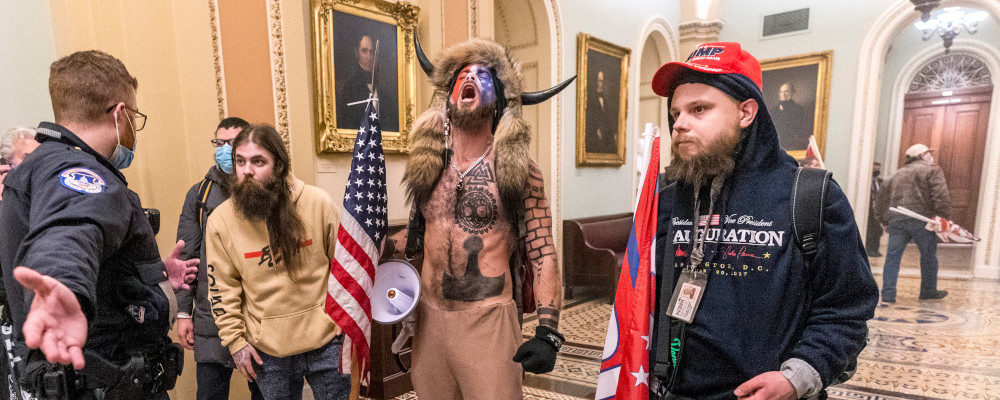This past weekend my family and I traveled from New York City where we live most of the year to L’Orignal, Ontario, where we spend our summers, Christmas, and other holidays. That our cross-border trek (with a beagle and a baby) took place between Canada Day and July 4 seemed like a fitting metaphor for our binational existence.
The trip got me thinking of the late Pulitzer Prize-winning columnist Charles Krauthammer whose own binational upbringing would have had him follow a similar route dozens of times. He was born in Manhattan but moved to Montreal with his family when he was five. Krauthammer stayed in Montreal (though he spent his summers in Long Beach, New York) until he graduated from McGill University in 1970. He then returned to the United States to earn his medical degree from Harvard in 1975 before moving to Washington in 1978 to pursue his passion for ideas and politics.
It involved a short stint as a speechwriter for Vice President Walter Mondale followed by a successful stop as a writer and editor at the New Republic. As Krauthammer’s politics gravitated from liberalism to conservatism, he became a nationally-syndicated columnist at the Washington Post where he remained until his passing in June 2018.
It’s hard to overstate how fortunate we were that Krauthammer chose politics over medicine (as his good friend and fellow Washington Post columnist George Will once put it: “the nation needed Charles more as a diagnostician of our public discontents”) and how unfortunate we are that cancer took him at the precise moment that renewed domestic and geopolitical turmoil calls out for his illuminating and principled commentary.
Krauthammer was a giant. Will wrote1 The Charles Krauthammer I knew https://www.washingtonpost.com/opinions/the-charles-krauthammer-i-knew/2018/06/21/960807a4-731c-11e8-b4b7-308400242c2e_story.html on his passing: “Some people are such a large presence while living that they still occupy space even when they are gone.”
His columns didn’t just help his readers to put contemporary politics and major geopolitical developments into an intellectual and moral framework. Krauthammer helped to actively define the era through his ability to see the world and write about it clearly without any pretensions or self-censorship. He gave us the “Reagan Doctrine” to conceptualize the Reagan Administration’s Cold War policy and the “unipolar movement” to describe its aftermath. He was at the forefront of cutting-edge debates about bioethics and brought expression to how millions of Americans felt in reaction to the 9/11 attacks.
My favourite Krauthammer column though, as I mentioned on a recent Hub Roundtable podcast, is his December 2011 column, “Alone in the universe.” The column’s premise is that the absence of intelligent life elsewhere in the galaxy may be an admonitory sign that advanced civilizations destroy themselves. As he wrote:
In other words, this silent universe is conveying not a flattering lesson about our uniqueness but a tragic story about our destiny. It is telling us that intelligence may be the most cursed faculty in the entire universe—an endowment not just ultimately fatal but, on the scale of cosmic time, nearly instantly so.
The only safeguard against such an existential fate is the proper work of politics which he described as the “ordering of society and the regulation of power to permit human flourishing while simultaneously restraining the most Hobbesian human instincts.”
Then Krauthammer explains:
There could be no greater irony: For all the sublimity of art, physics, music, mathematics and other manifestations of human genius, everything depends on the mundane, frustrating, often debased vocation known as politics (and its most exacting subspecialty—statecraft). Because if we don’t get politics right, everything else risks extinction.
We grow justly weary of our politics. But we must remember this: Politics—in all its grubby, grasping, corrupt, contemptible manifestations—is sovereign in human affairs. Everything ultimately rests upon it.
For those involved in the world of ideas and politics, these passages are a call to persevere in the face of frivolity and frustration. They’re a reminder that a politics of moderation (as defined by one’s temperament rather than ideology) is a crucial precondition for peace, order, and prosperity. It matters.
Krauthammer’s political moderation came out of his exposure to left- and right-wing radicalism as a student at McGill, which he outlined2CHARLES KRAUTHAMMER TRANSCRIPT https://conversationswithbillkristol.org/transcript/charles-krauthammer-transcript/ in a 2015 interview:
And I remember at the tender age of—I went to college at 16, so I was probably 18, and a junior—and there was a giant demonstration to liberate McGill, and at the head of it arm in arm was the most radical Communist professor at McGill, a guy called Stanley Gray, arm in arm with a guy whose name I forget, the leader of the French radical nationalist, essentially a fascist party.
Extremely anti-immigrant, they didn’t want anybody to come in because they wanted only French immigrants. They were marching arm in arm. Now, normally it takes ’til middle age to realize that Left and Right are essentially at the extremes, the equivalent, totalitarian, they have different words for them. You know that nationalism, extreme nationalist, extreme socialism they don’t just meet in Berlin in 1933, they can meet at McGill in 1968, or whatever that was.
So I became very acutely aware of the dangers, the hypocrisies, and sort of the extremism of the political extremes. And it cleansed me very early in my political evolution of any romanticism. I detested the extreme Left and extreme Right, and found myself somewhere in the middle.
This commitment to anti-radicalism pushed Krauthammer in a conservative direction at a time when the political Left had something of a monopoly on radicalism. It wasn’t that he left liberalism so much as contemporary liberalism came to tolerate fringe fellow travelers in the form of the anti-globalization movement, moral relativists, naive isolationists, and a disturbing number of anti-Semites. Conservatism, therefore, seemed comparatively analytical, pluralistic, and serious in the interregnum between the end of the Cold War and Donald Trump’s surprising election in 2016.
We’ll never fully know how Krauthammer would have reacted to the recent rise of reactionary politics on the Right. Cancer treatments caused him to stop writing roughly ten months before his death in June 2018. But we have two reasons to think that he would have been as principled a critic of this regrettable right-wing trend as he was of left-wing radicalism.
The first is the series of columns that he was able to write following Trump’s election. As other conservative pundits came to reconcile themselves with Trumpism, Krauthammer was uncompromising: Trump, in his view, was a “demagogue” and “Third World strongman” who represented a “systemic stress test” to the American system of government. He refused to say two plus two equals five just because Trump was a Republican and appointed good judges.
The second was he basically anticipated these developments in a 1993 commencement speech at McGill in which he warned about the risk of getting swept up in fits of political fervour. As he told3Commencement at McGill https://www.nationalaffairs.com/storage/app/uploads/public/58e/1a4/e37/58e1a4e376d0a474345215.pdf the graduating class:
First, don’t lose your head. I’m speaking here of intellectual fashion, of the alarming regularity with which the chattering classes, that herd of independent minds, are swept away by the periodic enthusiasms that wash over the culture…
The next time you find yourself in the midst of some national hysteria with sensible people losing their heads, with legislatures in panic, and with the media buying it all and amplifying it with a kind of megaphone effect, remember this:
Remember that a people—even the most sensible people—can all lose their heads at once.
Fundamentally, though, Krauthammer’s strength as a public intellectual was his principled pluralism. Although he changed his mind on key issues over his lifetime (including his shift from the Left to the Right on the welfare state), he never wavered on this fundamental ideal. In a tribute to his hero Isaiah Berlin,4A MASTER AT EXPOSING PSEUDO-FREEDOMS https://www.washingtonpost.com/archive/opinions/1997/11/14/a-master-at-exposing-pseudo-freedoms/40f95bf7-24fe-4596-b6ef-2d3f35a57275/ he wrote:
The true heart of the liberal political tradition is the belief that no one has the secret as to what is the ultimate end and goal of life. There are many ends, each deserving respect, and it is out of this very pluribus that we get freedom.
This consistent principle for Krauthammer reflected a clear-eyed view of the fragility of democracy and the fruits that it enables. His was a politics of Burkean gratitude: the notion that success (or failure) is ultimately determined by an ongoing multi-generational process of maintenance and improvement.
As Krauthammer told McGill students in his 1993 commencement speech:
It was the advice of Chesterton who defined tradition as the democracy of the dead. Tradition is the ultimate democracy because it extends the franchise to generations past and benefits from their hard-earned wisdom.
Four years after his untimely death, we still miss the sublimity of his wisdom on both sides of the border.




